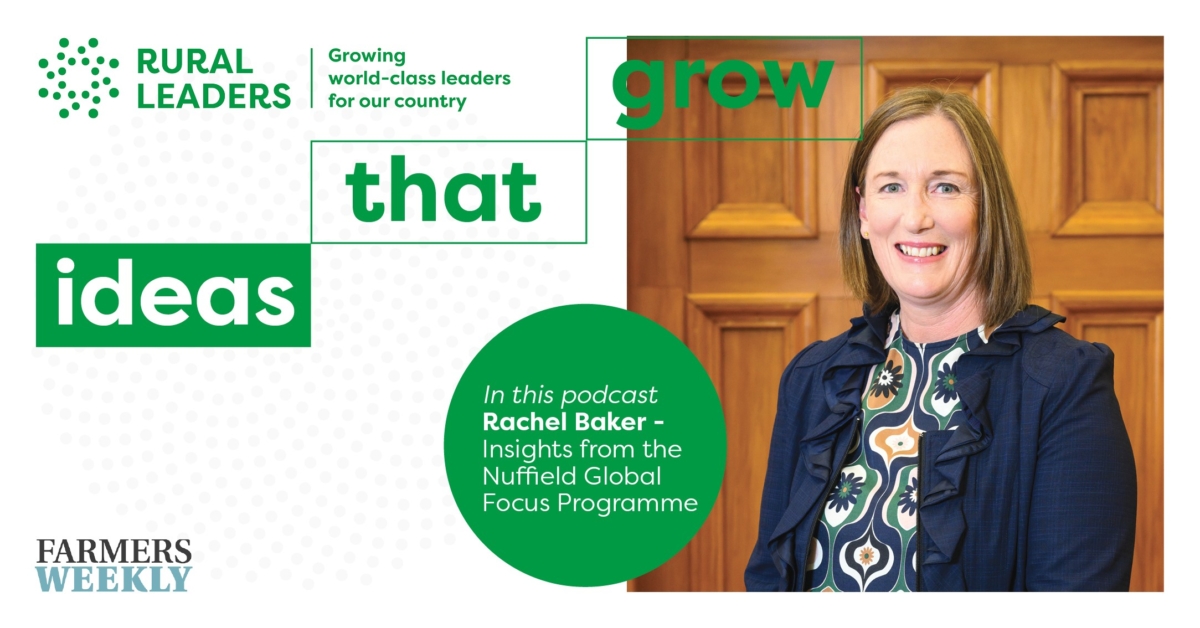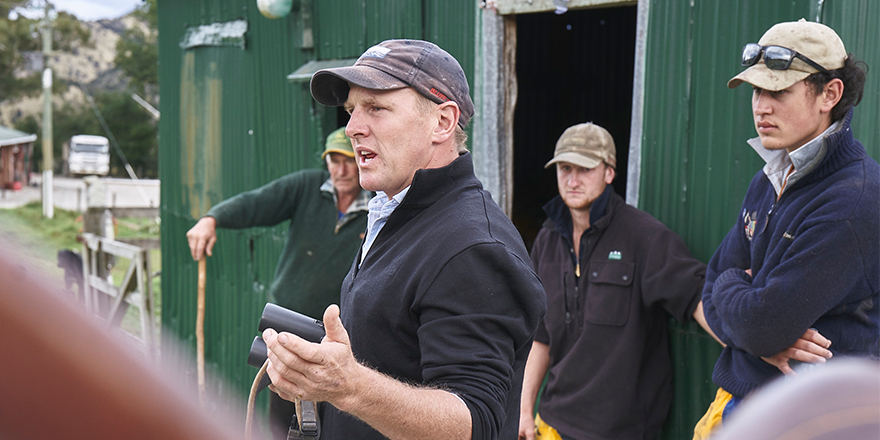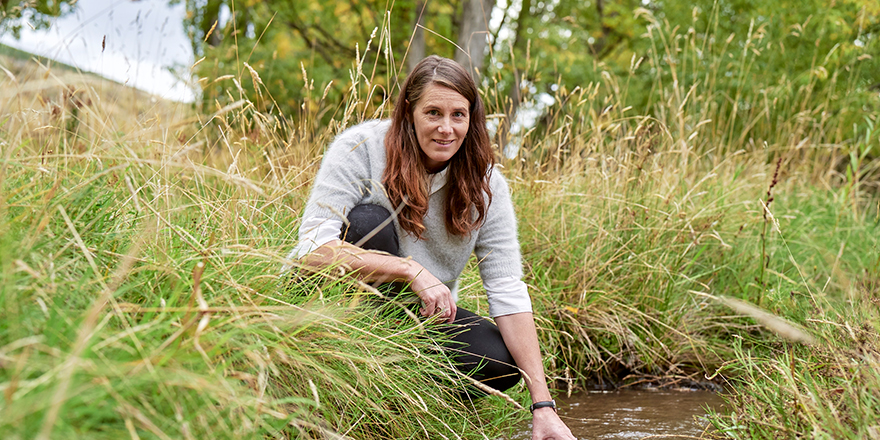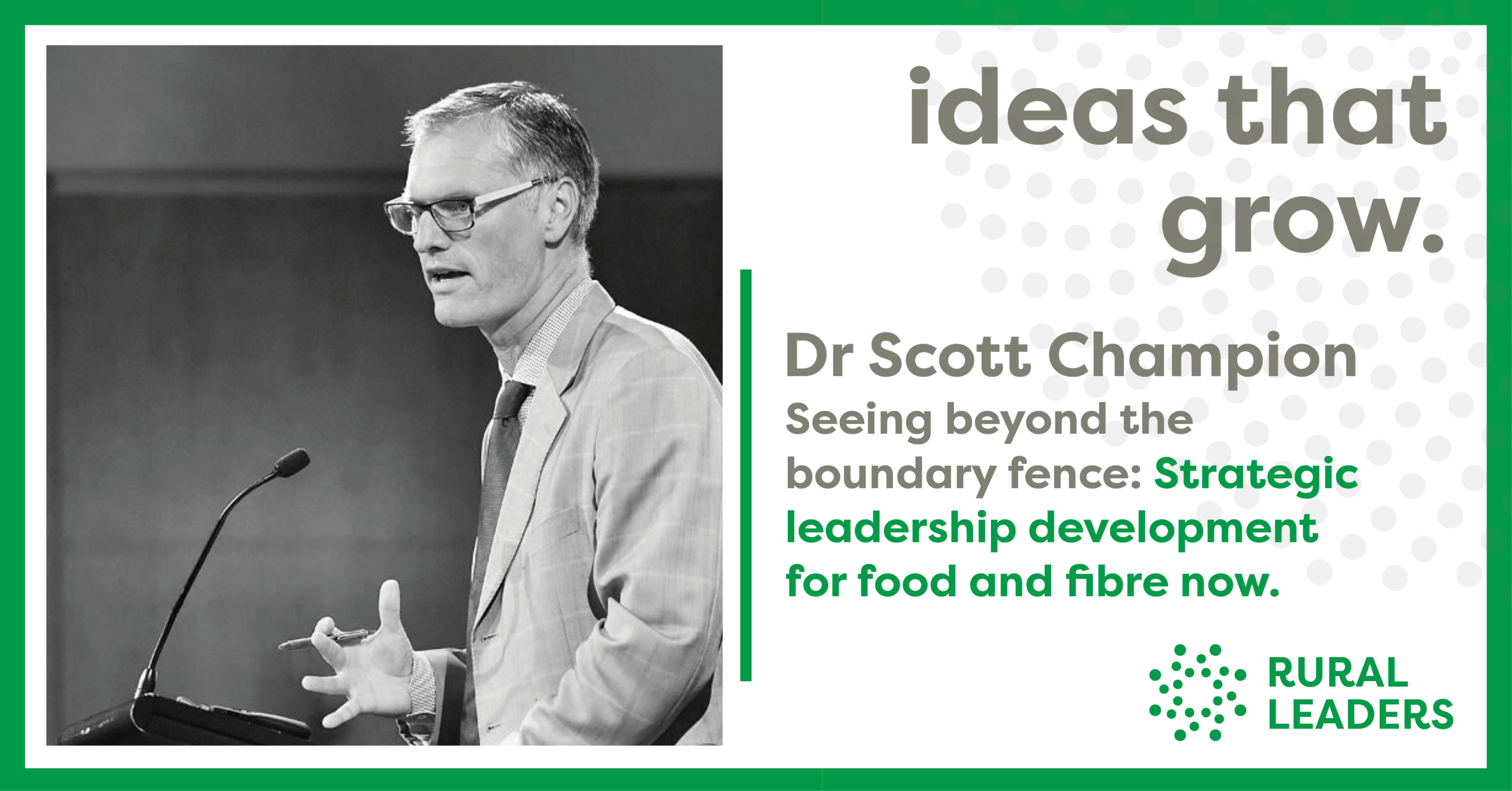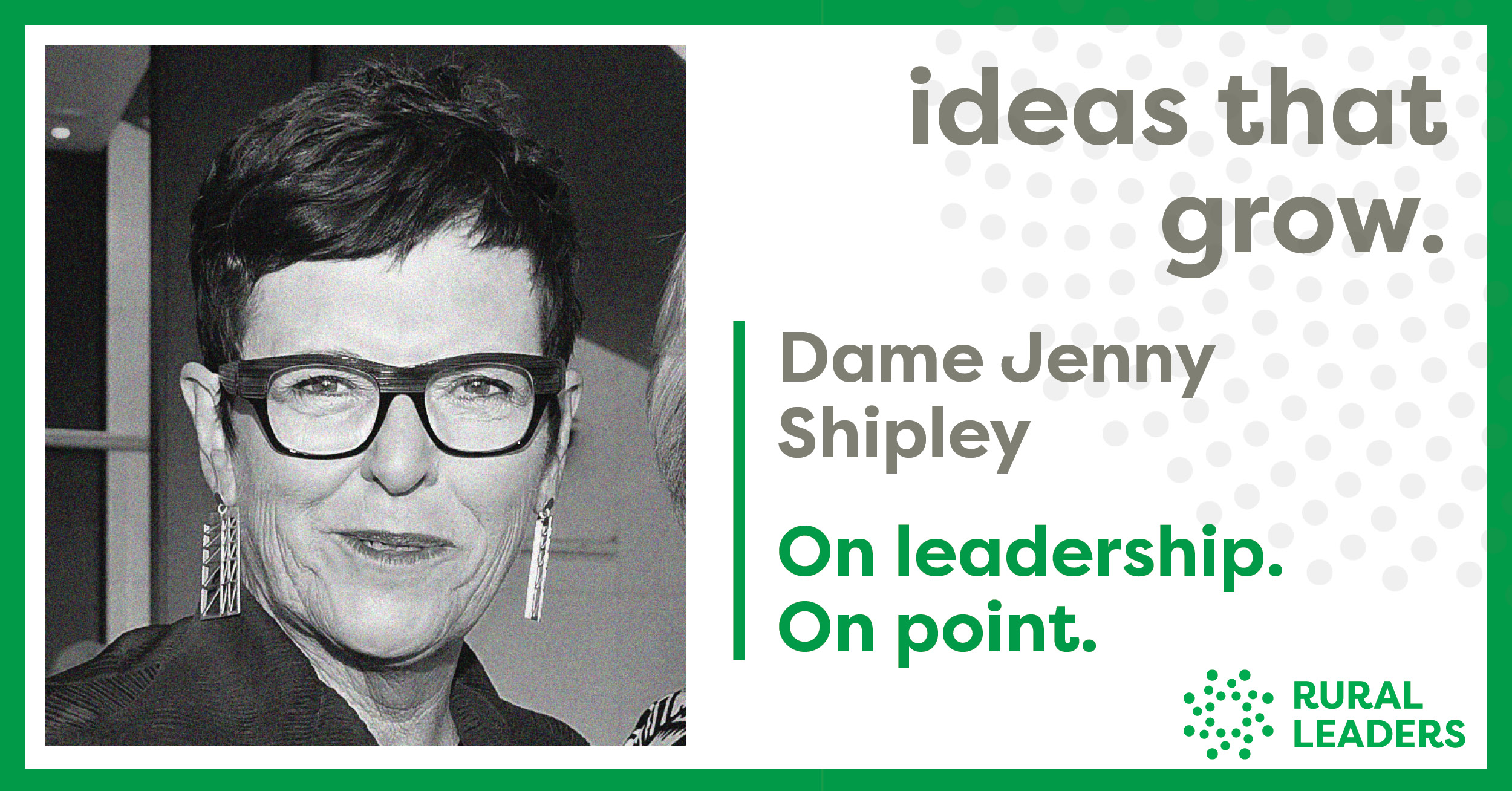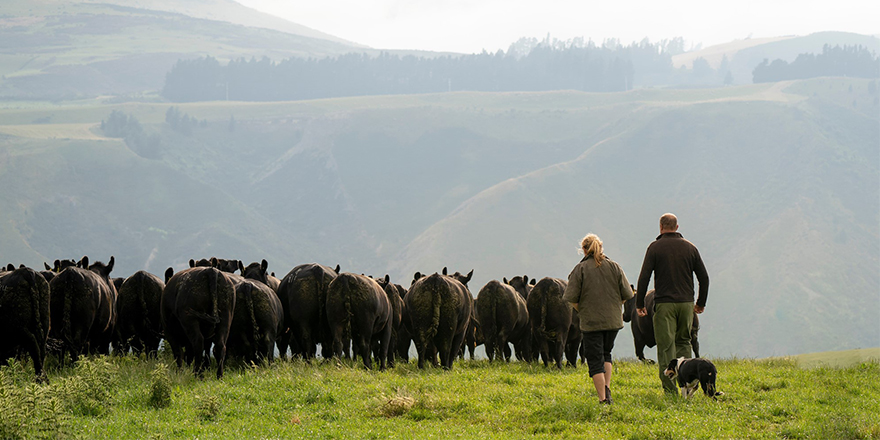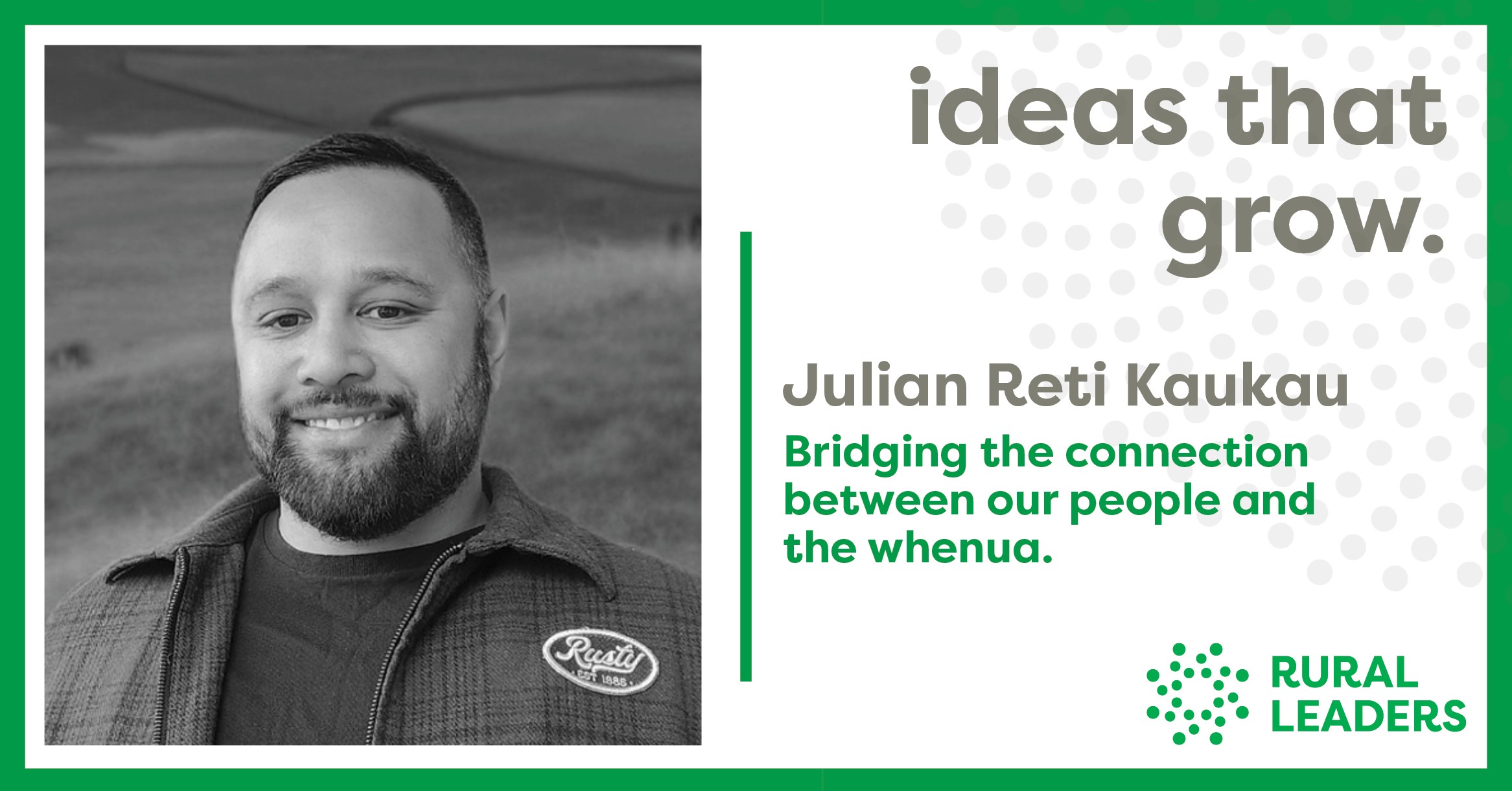In this podcast, Rachel Baker, 2024 Nuffield Scholar talks to Bryan Gibson, Managing Editor, Farmers Weekly, and gives a unique perspective from inside Nuffield.
Rachel speaks about about some of the similarities and differences between the farming systems in the countries she has visited with New Zealand’s.
Rachel discusses insights from Indonesia’s primary industries, France’s love of food, Denmark entering an emissions scheme, California’s water challenges and Chile’s low rates of Research and Development.
This is a must listen for anyone considering a Nuffield Scholarship in 2025 or beyond.
Listen to Rachel’s podcast here or read the transcript below.
Bryan Gibson – Managing Editor of Farmer’s Weekly.
You’ve joined Rural Leaders’ Ideas That Grow podcast. In this series, we’ll be drawing on insights from innovative rural leaders to help plant ideas that grow so our regions can flourish. Ideas that Grow is presented in association with Farmers Weekly.
Bryan Gibson, Managing Editor of Farmers Weekly.
Welcome to Ideas That Grow, a podcast from Rural Leaders. I’m your host, Bryan Gibson, the Managing Editor of Farmers Weekly. We’ve got a very special guest today, a current Nuffield Scholar, Rachel Baker. G’day, Rachel, how are you?
Rachel Baker, 2024 Nuffield Scholar
Yeah, good. Thanks, Bryan. Thanks for having me.
BG:
Now, where are you calling in from? Where’s home for you?
A Nuffield Scholar with a background in many industries.
RB: Home for me is Central Hawkes Bay, tucked up near the Ruahine Ranges. My husband and I graze just under 500 dairy heifers. I guess in my day job, I’m portfolio manager for pit fruit for my farm investments. And also with a dairy background, I do some consulting with dairy farmers.
BG: Quite a range of farming industries involved there.
RB: Yeah, life isn’t a straight line. It’s a wiggly line. There are a few stories behind those changes. But I’ve been fortunate. I’ve got a foot in agriculture, and I guess a foot in horticulture as well. So, it keeps me busy and keeps life interesting.
BG: Was that always going to be the path for you? Did you grow up on a farm or was it something you found?
RB: I grew up on a small farm, but my mother was from a large sheep and farming family here in Hawkes Bay. So, I’ve always been involved in farming, but I actually did a veterinary degree. So, I worked as a veterinarian for a short period of time and then morphed into dairy consulting. Then my husband and I took an opportunity to go share milking. So that’s how we entered the dairy sector and had some really good experiences there and actually sold our cows and bought a dry stock farm. That’s how we ended up grazing dairy heifers.
The transition to horticulture really came about through dairy connections within my farm investments. Because I live in Hawkes Bay, I said yes to an opportunity to oversee some of those early apple developments. That was seven years ago and still involved, yeah, still learning and enjoying it along the way with the dairy.
BG: Attracting more investment into food production sectors is pretty vital. So, you’ve got a big job.
RB: It is a good story because it’s bringing capital into the agriculture and horticultural sector, largely from New Zealanders, which is a really positive story. So, yeah, I’m really pleased to be involved in managing their investments.
Halfway through a Nuffield Scholarship.
BG: Now, you’re smack bang in the middle, I guess, of your Nuffield Scholarship Programme. How’s it going for a start, and what subject area are you looking at?
RB: Yes, I am part way through my scholarship at the moment. I’m interested in looking at New Zealand’s global proposition in terms of being a food exporter. In terms of Nuffield itself, the programme really is comprised of three parts. The third part is that research project and doing individual research, which I’m yet to do.
The Nuffield Contemporary Scholars Conference (CSC).
The first part is a conference where all the scholars from that year from around the globe meet together in a country, which changes every year. It’s a conference looking at global issues as well as the host country itself. We were fortunate that Brazil was the host country for 2024.
We went to Brazil in March and had our global scholars conference there. The second part to Nuffield is a global focus programme, and I’ve just come back in early July from that, which is a small group travelling together through five countries in five and a half weeks looking at food production.
The Nuffield Global Focus Programme (GFC).
BG: Can you tell us more about the Global Focus Programme?
RB: There are a number of different Global Focus Programmes based on different times of the year to try and give an opportunity to fit within your own farming and work calendar, and also different countries as well. The countries our group visited were: Indonesia, France, Denmark.
We also went to California and to Chile. The group was made up of 12. They were a good representation of countries as well. We had six Australians, two from Ireland, a Brazilian, a Chilean, and a Zimbabwean. We all travelled together through that time, and obviously got to know each other really well, as well as looking at the challenges and opportunities in all of those countries.
BG: First up, I mean, having that range of people from diverse farming-related backgrounds must be really cool to just talk while you’re travelling and understand how other people think about things.
RB: It was a really diverse group not only in terms of the countries but also what sectors people were involved in. We had tulip grower from Tasmania through to a pig farmer from Zimbabwe. Also, people involved in international fertiliser and the food trade. We had a really nice cross-section, good conversations, and learning together as a group.
That farmer, peer-to-peer learning, you just can’t beat it. When you’re on the road together for that time, you get to know each other well. You learn a lot from each other as well as, obviously, who you’re meeting day to day.
GFC - first stop Indonesia.
BG: Tell us a little about Indonesia. We forget that it’s one of the most populous countries on Earth. It’s not that far away, but when you think of it, you think of some beaches and things like that. But what food production facilities or operations did you take a look at?
RB: Indonesia was our first country, and it was fascinating. A huge population, well over 200 million. So compared to New Zealand, you couldn’t get a better contrast to start. We were hosted by an Australian who had set up cattle feed lots there over 30 years ago.
We’re really fortunate that we got good insights into a lot of different food sectors as well. We did see cattle feed lots, imported cattle from Australia being finished there in Indonesia, through to spice and pepper processing.
We went out on fishing boats with some local fishermen, right through to seeing pineapple plantations being harvested by hand in 40 plus degree heat and 90 % humidity. So, we got a really good range of scale, but also some real subsistence farming as well – from a single man climbing up trees and harvesting palm sugar and making a living out of that.
BG: And where did you head next? Scandinavia?
Nuffield GFC – France.
RB: So, from Indonesia, we headed to France. We spent our time in Normandy, in the north. And again, we got some good insight into French farming. France is just a wonderful food culture. They really celebrate food and they’re really proud of what they produce. A lot of it is artisan. It’s got provenance associated with it. And so, we got a real feel for that.
French farming is in a challenging place at the moment. They feel they’re under threat from imported food products coming in at a cheaper cost to what they can produce. That’s a challenging time for them. But by the same token, there are a lot of strong cooperatives in France. We got a good insight into some cooperative models, which, of course, having a number of strong cooperatives in New Zealand was really interesting.
BG: Yeah, what you were saying about the narrative that goes along with French food, it is so strong. A lot of people think this is something we could try to emulate here. I guess, put some real culture around our food production. I mean, is that something you see as worthwhile?
RB: As a New Zealand food producer, I think we produce high-quality food. It’s safe food from a food security viewpoint. So, any opportunity I had, I was looking for New Zealand produce in the countries we were visiting. There’s quite a buzz when you actually find New Zealand produce in a store or a supermarket when you’re travelling. So, I think from that regard, the food that I saw, the quality that was in front of the consumer was largely very good.
As food producers, we need to be high quality. There’s a lot of challenge coming to us or at us from countries with lower costs of production. I think quality is paramount and I think we should be proud of that. The provenance of New Zealand, it came up-time and time again. New Zealand was mentioned a lot – that it’s a beautiful country and we produce lovely food. So, we should leverage off that.
BG: Yeah. Now, where did it head next?
Nuffield GFC – Denmark.
RB: Next, we went to Denmark. So, it was an interesting time actually being there because not long after we left Denmark, they announced that agriculture would have an emissions tax from 2030. It was great timing for us. I think while I was away, New Zealand pushed pause on agriculture entering emissions trading scheme. So, the timing to be there in Denmark when they were deciding, they’d made the commitment they were going to go. It was just the uncertainty for farmers around what it actually looked like.
I found Denmark very similar to New Zealand in many ways. So, that was quite a good insight. They have a very high wages, and a high tax rate in Denmark, but obviously they have a very strong education, health, welfare system as well. In terms of trying to make a profit, it was a challenge for Danish farmers at this time.
BG: I’ve read a little about the plan that Denmark has to introduce that emissions levy. I know the agreement was nutted out by the government with stakeholders, and that includes some industry groups from the farming sector, so they did get to help mould it. On the ground there, were there farmers you spoke to? How were they feeling about it? Uncertain, I guess?
RB: I think they just wanted to have some certainty. There’s a great quote that uncertainty is the cancer of business. I think they just wanted to be certain about what the plan and the future looked like for them.
I think from a Danish farmer perspective, they do get good support, and they’ve got some excellent programmes in place around, say, a green accelerator programme. This is where they can get up to 70% rebate on any investment in technology that’s going to advance them towards sustainability and a green future.
It was clear that even though they were going to be entering an emissions tax, there was no doubt they wanted to maintain their food production and their productivity. In terms of entering the scheme was – it was not to reduce the amount of food that they were going to produce. It was just that they were going to produce it in a more environmentally sustainable way. From that perspective, I think that they felt there was support available to them to make the transition, and that’s quite refreshing.
BG: That’s really interesting. When I think about incentives for more sustainable production, you often think of planting and retiring land and that sort of thing. But having subsidies for technology, which is a completely different proposition, seems a bit more enticing to both sides of the equation.
RB: I think they’re looking at multiple solutions. They’re going to pump billions into retiring some peat lands in Denmark to help with their emissions transition. I also think biodiversity came up a lot in most of the countries we visited. And again, that’s a real opportunity for New Zealand, because if you look at the land area that we have in native forest and also in farmed land, what area has actually been retired or riparian planted?
We really need to map that and leverage off that because I believe it’s going to be a global food currency – biodiversity in the future. So, we have it and we’re making really good progress. I think we need to leverage that to our advantage.
Nuffield GFC – California.
BG: Now, California, a big state, a food basket in many ways for the United States. That must have been fun.
RB: Yeah, it was really interesting. It’s the fifth largest economy in the world, if it was to be treated as though it was a country. So, we spent time in California, in Fresno, up through to Sacramento.
It was very hot. We had a heatwave while we were there, which was uncomfortable for most of us. But the big story there is water and really getting a good insight into the water challenges they’ve got in California. With less ice melt out of the Sierra Nevada Mountains, more rain, more precipitation, more growing cities, all demanding more water.
California - the water scarcity challenge.
Their sources of water are surface with allocation rights for deep-water, groundwater takes. They’ve got real challenges around a six-inch rainfall in Fresno County. Maybe they get 50% of their allocated volume from surface water. They’re needing to take groundwater as well. So, there are big recharging programmes in place. One farm we went to had spent $15 million USD on a recharge system, which may only be used every three or four years.
Then further up, closer to the Delta, the Government’s proposing putting in a $25 billion USD pipeline in to pump water through to Los Angeles and San Francisco. So, you’ve got real contention around water rights and water use and what priorities should be in place.
So, it was really good for us to see that. But also, you do wonder what areas may not be in horticulture in California in the future. So, there’s some real challenges there for them around not only the infrastructure, but just the allocation of water as well.
BG: Yeah, the last few years, they’ve been focusing on some pretty thirsty crops there, haven’t they?
RB: They have. I guess also the challenge is they’ve had real success growing almonds and selling almonds. But again, they’re almost running the risk of commoditising their own value product by planting more and more hectares. So, it’ll be interesting to see how that plays out.
Nuffield GFC – Chile.
BG: And further down the Coast of Americas, Chile, it always amazes me that place. I’ve not been there, but it’s so long and thin.
RB: It is the longest and thinnest country in the world. Narrow, I think, in diameter than New Zealand, from border to border. So, that was our last country. We left 40 plus degree heat in California and went into the single-digit temperatures in Chile, which was a bit of a shock for us all. But hey, what a great country.
We had some really good insight into Chile and, I guess, in policy to start with. Also, looking at Chile as a country that is open to foreign investment. We saw examples of that in Chile. But again, similar challenges, less ice melt, more precipitation, lack of infrastructure, investment, a slow consenting process.
On-farm storage of water was not really progressing very quickly at all. It’s a low-wage economy. We went to an avocado plantation on very steep country that in New Zealand would be sheep and beef or planted in forestry. Their staff were harvesting with football boots, with sprigs, because it’s so steep. So, they were harvesting avocados by hand. Just to see that on that steep country was quite mind-blowing. They’re a real powerhouse of cherry production and apple production too.
I’m involved in the apple industry with the work that I do so, it was really interesting. Just the scale of some of their operations was really significant. One thing I found interesting was that levy-funded R&D didn’t appear to exist in Chile. That’s a real challenge for them in terms of keeping pace with, say, countries like New Zealand. We could fund more, of course, but we have a real focus on research and development and advancement of varieties, et cetera. So, I felt we certainly had a competitive advantage there.
What’s next on the Nuffield Scholarship Programme?
BG: So, you’re back in Aotearoa, and you’ve got a lot to digest from all that, I guess. Next up for you in the Nuffield Programme is putting pen to paper?
RB: Yeah, that third part of the Nuffield Scholarship is individual travel. So, I’m starting to develop my travel and research plans. I plan to spend some more time away looking, as I said before, that value proposition for New Zealand into the future. So, visiting countries that maybe operate in the same markets as us or maybe they’re customers of ours, and really drilling deeper into that.
BG: Sounds really exciting. Thanks for that, Rachel. All the best for the rest of your Nuffield journey.
The 2025 Nuffield New Zealand Farming Scholarship applications close 18 August.
RB: Thank you. And for those that are thinking about applying for Nuffield, I’d really encourage them to really think strongly about applying because from my perspective, this is filling that global piece I really wanted to develop, being involved in food production.
This really is unparalleled. It’s an amazing opportunity. For those people that are thinking about applying for a Nuffield Scholarship, put that imposter-syndrome to the side and put your best foot forward because it really is an amazing opportunity.
BG: Thanks for listening to Ideas That Grow, a Rural Leaders podcast presented in Association with Farmers Weekly. For more information on Rural Leaders, the Nuffield New Zealand Farming Scholarship, the Kellogg Rural Leadership Programme, and the Value Chain Innovation Programme, please visit ruralleaders.co.nz
For more information on Rural Leaders, the Nuffield New Zealand Farming Scholarships, the Kellogg Rural Leadership Programme, the Engage Programme, or the Value Chain Innovation Programme, please visit ruralleaders.co.nz
